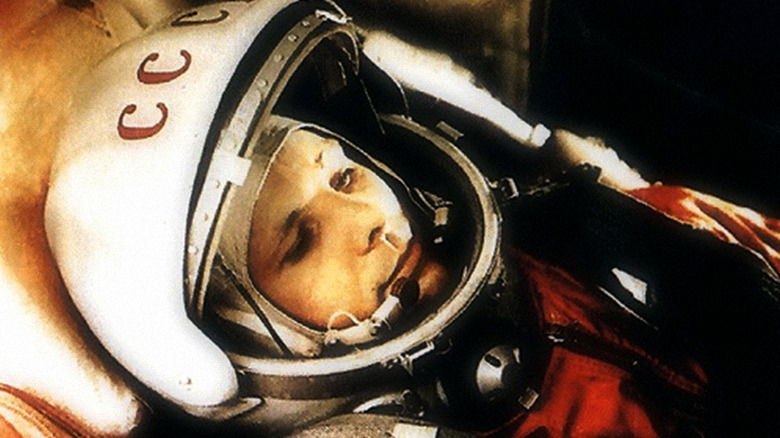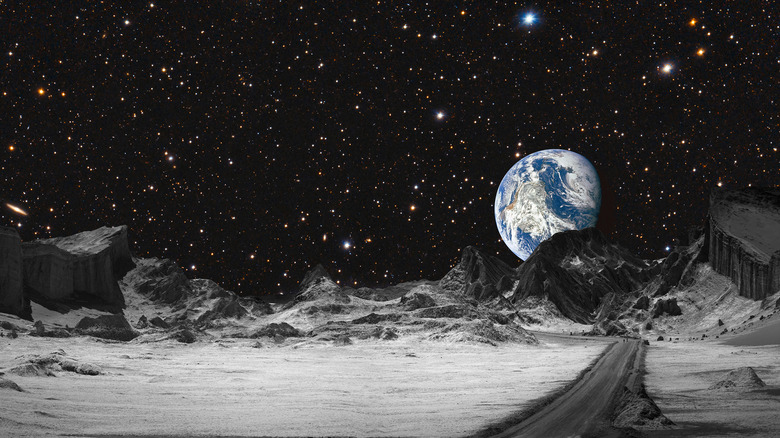What Would've Happened If The Soviet Union Had Won The Space Race?
As the Cold War sprouted after World War II, so did the space race, a scientific competition between the United States and the Soviet Union to be the first nation to reach various milestones in the final frontier. The Soviets took an early lead: Sputnik was the first satellite in space, Laika the first animal in orbit, and Yuri Gagarin the first man in space. Yet it was the Americans who put the first humans on the moon in 1969. The U.S. had won, and after a few more Apollo missions, interest from politicians and the public waned, and no one has been on the moon since (via BBC).
Had the first person on the moon been a cosmonaut rather than an astronaut, things could have turned out much differently. The U.S.S.R. would have likely spent more time on the moon, partly because they wished to conquer space, and partly because the populace could not object to the massive chunk of the budget required. Continued Soviet interest in the moon and space at large would have roped the Americans back into the fray, and the space race would continue on to the next astronomical achievement.
A lunar base would be the next step
If the Soviet space leadership was more confident, and some technology was either developed or stolen from the Americans through espionage, it could easily have been the Hammer and Sickle on the moon rather than the Stars and Stripes. The U.S.S.R.'s next step would likely have been to create the first colony in space, or at least a moon base. According to National Interest, President Nixon cut the NASA budget in 1971. A Soviet lunar base would have stayed Nixon's hand.
The American populace was mostly interested in the race to the moon, as there was direct competition from their sworn enemy, the Soviet Union. It was originally estimated during the Apollo program that humans would step on Mars by 1980. Had the space race continued throughout the '70s, with both nations willing to spend the money and resources — possibly with the help of private companies, as is happening now — that could well have been a much more accurate prediction.

